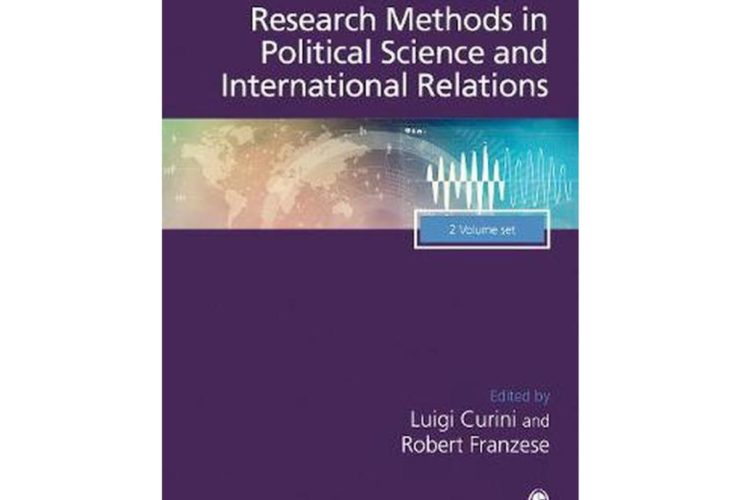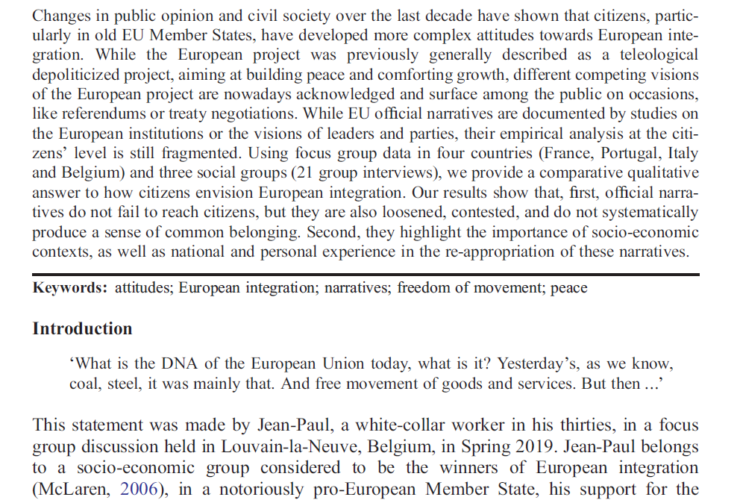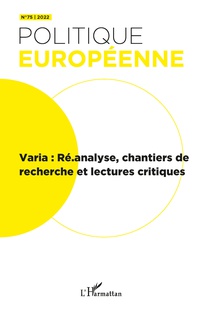Democracy an empty signifier?
A qualitative (re-) appraisal of citizen beliefs in democratic legitimacy in Western democracies

DATE
Jan, 2020
AUTHOR
Caprioli, Mauro, Virginie Van Ingelgom, Luis Vila-Henninger
CATEGORY
Publications
Democracy an empty signifier? A qualitative (re-) appraisal of citizen beliefs in democratic legitimacy in Western democracies
In recent years, literature on democracy’s backsliding – meaning the state-led elimination of the political institutions sustaining an existing democracy – in Western democracies have come to the fore. At the same time fewer citizens than ever are engaging with democratic politics; nonconventional forms of participation are more and more visible; anti-system and neo-populist parties shake many West European democracies to their foundations. Thus, the disaffection of ordinary citizens towards democracy could seem an obvious, and indeed urgent, topic for thorough investigation. So the question is: are citizens satisfied with the way democracy works? Secondly, if not, what can account for these changes in citizens’ relationships to democracy over time?
While the question sounds simple, the research on citizens’ (dis)satisfaction with democracy has failed to produce robust conclusions beyond the predictable findings that economic well-being and support for winning parties lead to greater satisfaction with democracy (Anderson & Guillory, 1997; Blais & Gelineau, 2007; Henderson, 2008). Indeed, this phenomenon of ‘democracy’s backsliding’ is not borne out in survey data on public satisfaction with democracy. In this paper, we argue that existing research designs are not equipped to answer this research question with any precision because of a rather unproductive debate about the meaning of the survey question (of satisfaction with democracy) and the implications of aggregate variation across countries (Canache et al. 2001, Linde & Ekman 2003). Indeed, part of the problem with existing research is that, while political science has made great strides in measuring democracy across countries (Coppedge et al. 2018), there has been little investigation of variation in how citizens define and understand what democracy means in different social and national contexts or period of time. Indeed, a single word may evoke different associations for different people. As such, the term democracy is unlikely to trigger the same or equivalent associations between different people in different contexts. More precisely, we argue in this paper that there is a gap in the literature concerning collective beliefs in democracy. This text focuses thus on democratic legitimacy beliefs and the understandings and constructions embedding them. Studying citizens’ beliefs in democracy will help us to understand the current democratic backsliding from a citizen perspective by hypothesizing that democracy has become an empty signifier.
On the empirical level, this paper analyses democratic backsliding from citizens’ perspective by hypothesizing ‘democracy’ as an empty signifier. Implying that citizens’ definition of democracy determines their satisfaction with it. Empirically, this study re-analysed qualitative data (interviews and focus groups) from Belgium, France, and the UK over a period of 20-years – in a diachronic comparative perspective. By providing a detailed understanding of citizens’ beliefs in democracy and their evolution in qualitative terms, we seek methodological renewal for the study of citizens’ disengagement.
Reference : Caprioli, Mauro, Virginie Van Ingelgom, Luis Vila-Henninger, (2020), Democracy an empty signifier? A qualitative (re-) appraisal of citizen beliefs in democratic legitimacy in Western democracies, Paper prepared for the SPSA Annual Conference, San Juan, January 9-11, 2020.



